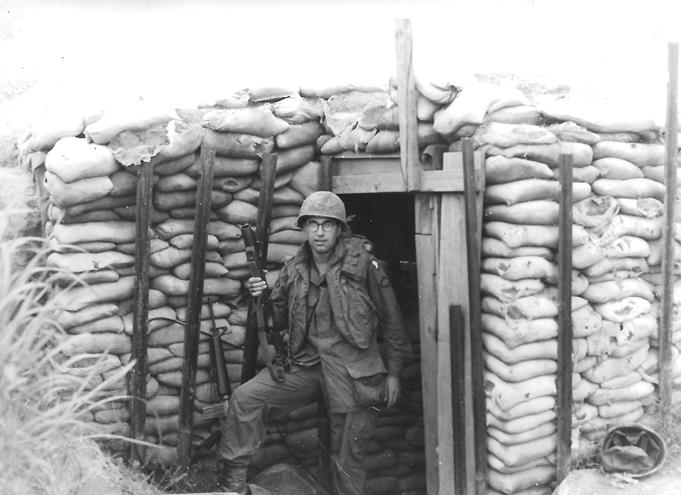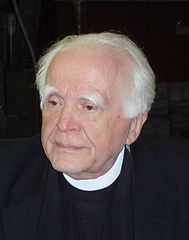Nigel Biggar: In Defence of War

William De Arteaga on guard duty in Vietnam.
Chapter 7, “Constructing Judgments,” will be for many the most problematic in Biggar’s book. It is a careful and logical analysis of the Gulf War and Invasion of Iraq in 2003. Using the multiple criteria of just war theory, Biggar concludes that the invasion was justified. This is counter to the prevailing opinion, and I will not even attempt to explain Biggar’s argumentation here except to say that it is sound. I am in sympathy with Biggar seeking to disentangle the highly charged rhetoric about the war, how it went wrong, and the ultimate moral issues. My evaluation of the Vietnam War is similar: it was a just war ineptly waged and ended.
In his concluding section, Biggar’s words do a masterful work in summarizing his case for a just war and against pacifism.
What reason might we have, then, to choose just war over not-war [pacifism]? One reason is this: that human experience teaches that wickedness, unpunished, tends to wax. Sometimes, of course, wrongdoers are so shamed by defenceless innocence that they renounce their wrongdoing. But history suggests at most this is rare, and at least cannot be relied on. It is highly doubtful, it seems to me, that Gandhi would have embarrassed and softened Hitler, Stalin, Mao, Pol Pot, the Interahamwe, Ratko Mladic, or Saddam Hussein. Violent domination can be a powerful addiction, and judging not only by SS fanatics but also by civilian policeman who committed mass murder in Poland and the USSR as members of the Einsatzgruppen, human beings are quite capable of hardening themselves against compassion. Their wickedness is excited, not sickened, by impunity. … That is why effective retribution [war] is so important (pp. 330-331).

Father Stanley L. Jaki in June 2007. Father Jaki (pronounced YAH-kee), author of more than 40 books, was the Gifford Lecturer in 1974-75 & 75-76 and was awarded the Templeton Prize for Progress in Religion in 1987.
Image: Antonio G Colombo / Wikimedia Commons.
I will offer one general criticism to this masterful exposition of Christian just war theory. Some of the chapters are overly academic and should have been re-written with less cross-argumentation in relation to other scholar’s opinions. Stanley Jaki (1924-2009), the celebrated theologian and physicist, is a model for this. His principal life work was elucidating the relationship between Christianity and the rise of science. His multiple works show that the philosophical assumptions of the Bible, the world created by one God and man’s mind a reflection of God’s, allowed science to be birthed in Western Europe in the late Middle Ages. True science as a system of acquiring and testing knowledge did not arise in Ancient Greece or in China, in spite of their superior math and technology. Jaki presented his findings in some works that were philosophically and technically demanding, and other works that were simplified and accessible to the layperson. I would love to see a rewrite of In Defence of War at a layman-friendly level.
As is, In Defence of War is a work I commend to pastors, especially those who labor in university settings. I also recommend it to those Christians who serve in the military. Finally, I recommend this book to the many who are unaware of the rich heritage of Christian just war theology.
Reviewed by William De Arteaga
Preview In Defence of War: https://books.google.com/books/about/In_Defence_of_War.html?id=CXB4AAAAQBAJ
Category: Fall 2015, Living the Faith


